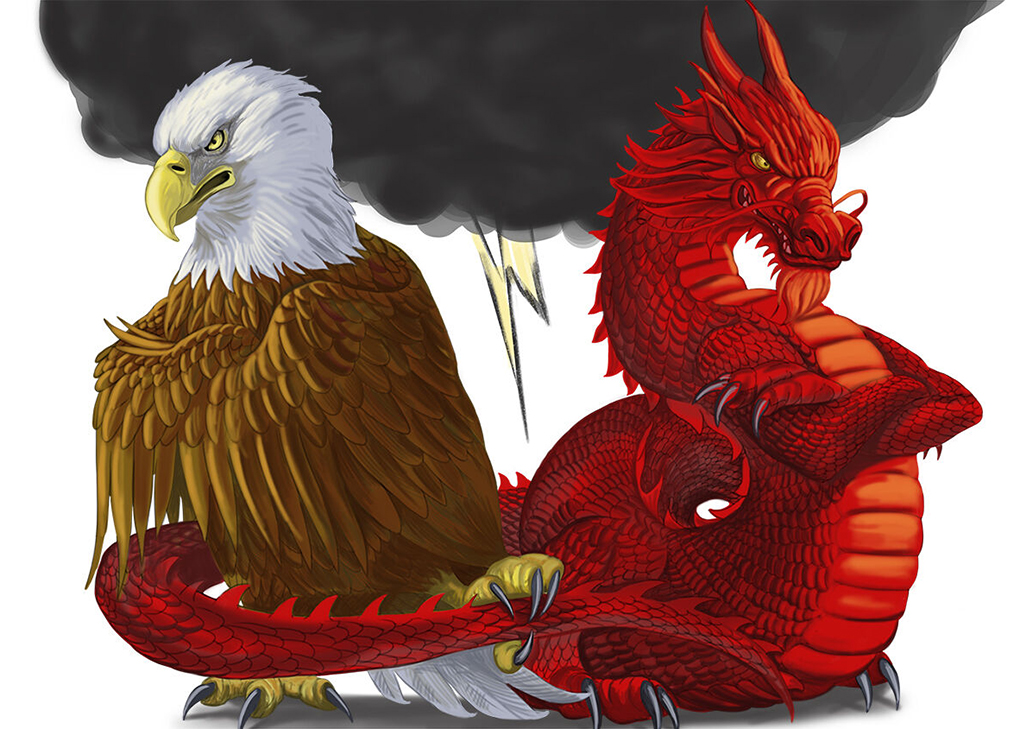Imports vs Exports – Why the US Wars with China
Imports vs Exports – Why the US Wars with China
 This image, first seen in an article by The Trumpet, depicts a dragon at odds with the bald eagle. The cold war, trade war, and standoff between the two largest world powers have been depicted on many fronts in our daily lives for the past five years.
This image, first seen in an article by The Trumpet, depicts a dragon at odds with the bald eagle. The cold war, trade war, and standoff between the two largest world powers have been depicted on many fronts in our daily lives for the past five years.
China now enjoys the world’s largest trade surplus as its export economy whereas the United States is the biggest net importer in the world by a large margin giving rise to its trade war with China that started in early 2018.
According to Statistica, China, Russia and Norway are the countries in the world which export much more than they import (in monetary terms) as the list was reshuffled following the Ukraine war energy crisis. Exporters of now very expensive fossil fuels saw shifts in their trade balances towards more profitable exports.

China, which ships abroad electronics and metals but also consumer goods, has seen a more sustainable rise towards the country with the world’s largest trade surplus as its economy which is heavily geared towards exports has successfully pivoted to more expensive products. China’s involvement in the natural gas trade, however, has also been pointed out as a factor that boosted the value of its exports in 2022.
Traditional export nations like China, Germany and Japan have in the past been heavily criticized for their trade surpluses and were accused of hogging money instead of investing it to aid markets in the long run. In the case of China, its surplus is especially pronounced with the United States, the biggest net importer in the world by a large margin. This was a major factor in Donald Trump’s trade war with the country that started in early 2018.
Germany, a big exporter of machinery and cars, is also earning much more through exports than it spends on imports, much to the disdain of the European Union, which in the past has put the country on notice about its trade surplus and demanded investments, wage hikes and lower taxes. This is supposed to bolster demand at home and give trade partners with a weaker performance the chance to export to Germany and improve their own economy, according to the EU. Germany has so far preferred to mostly ignore the warnings.
Yet, having a big trade deficit can be just as damaging as having a massive trade surplus. In the case of the U.S., which is buying from China to a large extent, the trade deficit has caused U.S. debt to China to rise, making the U.S. wary of a dependency. Because Chinese currency is not free from government interference, many also think China has an unfair advantage when it comes to how competitive its exports are.
Related
Comment:
Please add your comments below about this article, “Imports vs Exports – Why the US Wars with China.”











Leave a Comment
Want to join the discussion?Feel free to contribute!